Can You Mix Melatonin and Weed?
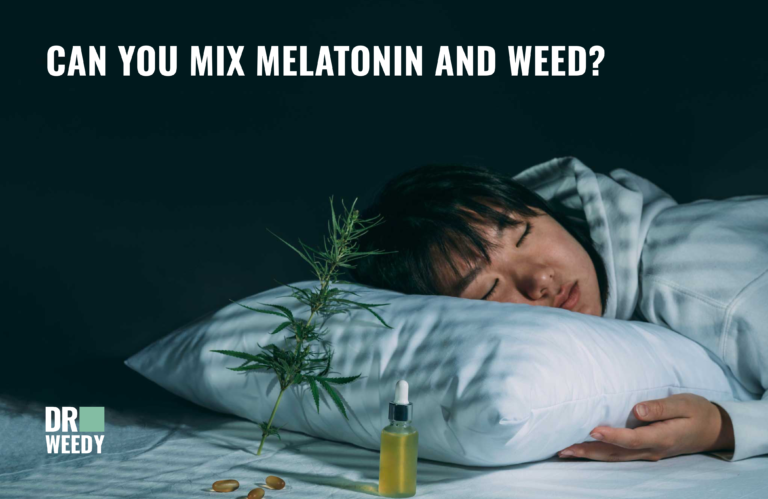

Many people use both melatonin and weed to help them sleep. But is it safe to take them together? And does the combination provide any added sleep benefits? This article will explore the interaction between melatonin and weed, potential side effects, and whether evidence supports using them as a sleep aid duo.
What Are Melatonin Supplements?
First, melatonin is a natural hormone our bodies produce in the evening to regulate sleepiness. Melatonin supplements provide extra amounts to mimic these natural sleep-promoting processes. The doses typically range from 0.5mg to 10mg.
People often take melatonin supplements to help with sleep troubles like insomnia, jet lag recovery, or adjusting to shift work schedules. When taken as directed, melatonin supplements don’t tend to cause serious side effects, though some people report next-day drowsiness, headaches, or nausea. (1)
What Impact Does Marijuana Have on Sleep?
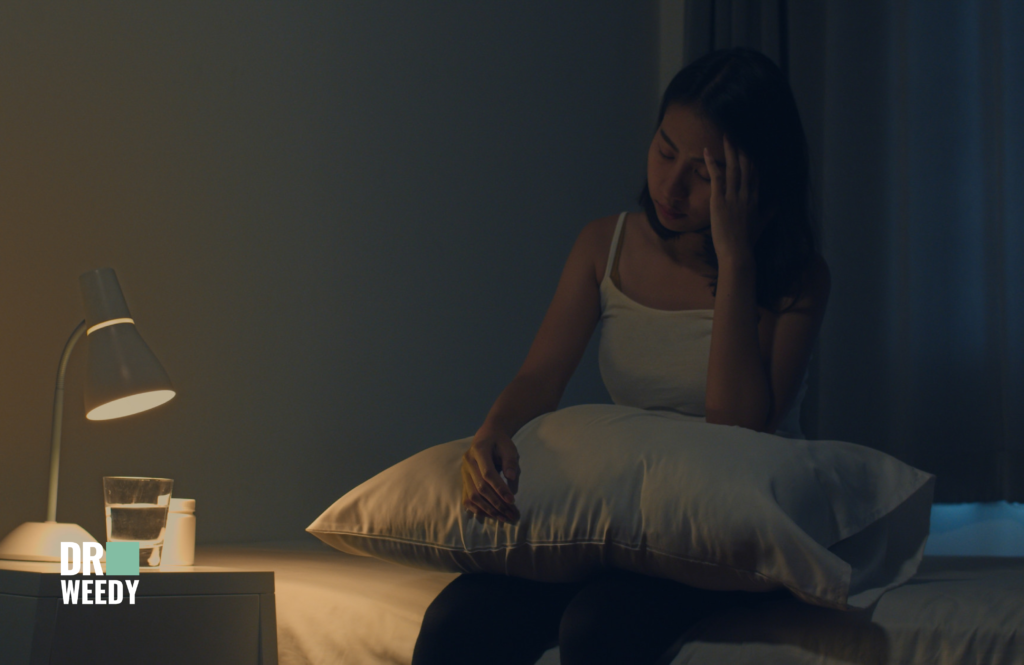
Research indicates that regular marijuana use can adversely affect sleep, potentially leading to insomnia. Insights highlight a link between the increased anxiety observed in frequent marijuana users and disruptions in their sleep. A notable study by Calvin Diep at the University of Toronto found a significant correlation between marijuana usage and altered sleep duration. Specifically, individuals who used marijuana for 20 days or more in a month had a 64% higher likelihood of sleeping less than six hours per night and a 76% increased chance of exceeding nine hours of sleep per night. Consequently, the use of marijuana primarily as a sleep aid is generally not advised.
On the other hand, occasional use of marijuana in small doses, may have a different impact. Such sporadic and low-dose usage has been associated with reduced time to fall asleep, aligning with current research that examines the nuanced relationship between marijuana and sleep patterns.
Combining Melatonin and Marijuana – Cause for Caution
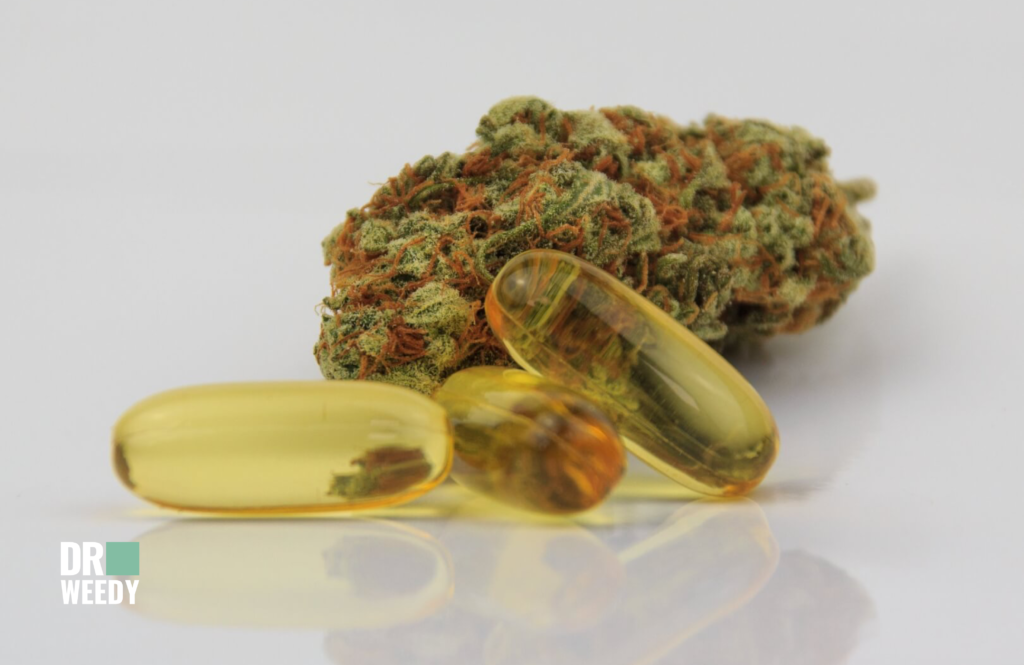
The combination of melatonin and CBD has gained popularity as a supplement duo aimed at enhancing sleep quality. This pairing is grounded in the belief that their mechanisms of action complement each other: melatonin is known for its role in facilitating the onset of sleep, while CBD is thought to potentially reduce disturbances during sleep.
Currently, no studies have formally tested pairing melatonin supplements with marijuana. So definitive judgments on appropriate doses, safety precautions, and potential health impacts are unavailable.
However, some preliminary evidence offers initial guidance. Marijuana may stimulate the body’s innate melatonin production (2). So supplementing more externally could significantly amplify intended effects.
Potential downsides of unmonitored combination use include:
- Excess daytime drowsiness and dysfunction
- Lingering disorientation or headaches
- Heightened anxiety or nausea
- Daily sleep pattern disruption
And while short-term benefits like quicker sleep onset seem plausible for occasional light users, long-term safety remains uncertain. Relying on the mix without medical oversight is unadvisable.
Is There Scientific Support for the Concurrent Use of Melatonin and Marijuana?

A comprehensive 4-week randomized trial investigated (3) the impact of melatonin and a variety of cannabinoids, including CBD, both individually and in combination, on sleep quality in a large group of 1,784 participants who reported sleep difficulties. The study specifically evaluated the effects of combining CBD, cannabinol (CBN), and melatonin. The results indicated that this combination did not significantly improve sleep disturbances compared to the use of melatonin alone. One critical limitation of this study was the absence of a placebo control group, which is essential for establishing the efficacy of a treatment. Additionally, the study’s inclusion of other cannabinoids, such as CBN, complicates the ability to generalize the findings.
There is a hypothesis, supported by some biochemical evidence, suggesting that CBD could potentially enhance the effectiveness of melatonin supplements. This is based on the notion that CBD might inhibit the activity of the enzyme CYP1A2, which plays a role in the metabolism of melatonin in the body (4). If this inhibitory effect of CBD on CYP1A2 is substantial, it could theoretically lead to increased levels of melatonin, thereby amplifying its effects. However, it’s important to note that this interaction between CBD and melatonin, particularly in terms of enhancing melatonin’s potency, has not been conclusively verified in human studies.
Potential Side Effects

While evidence is limited, potential side effects of mixing melatonin and weed may include:
- Extreme drowsiness and oversleeping
- Vivid dreams or nightmares
- Impaired brain function
- Hormone changes
- Drug interactions
The sedative and mind-altering effects of weed combined with melatonin’s influence over hormones mean unpredictable impacts, especially with frequent or long-term use.
Starting with very low doses of both and taking occasionally may help minimize risks. But any persistent or concerning symptoms should prompt medical guidance.
Tips for Safe Use
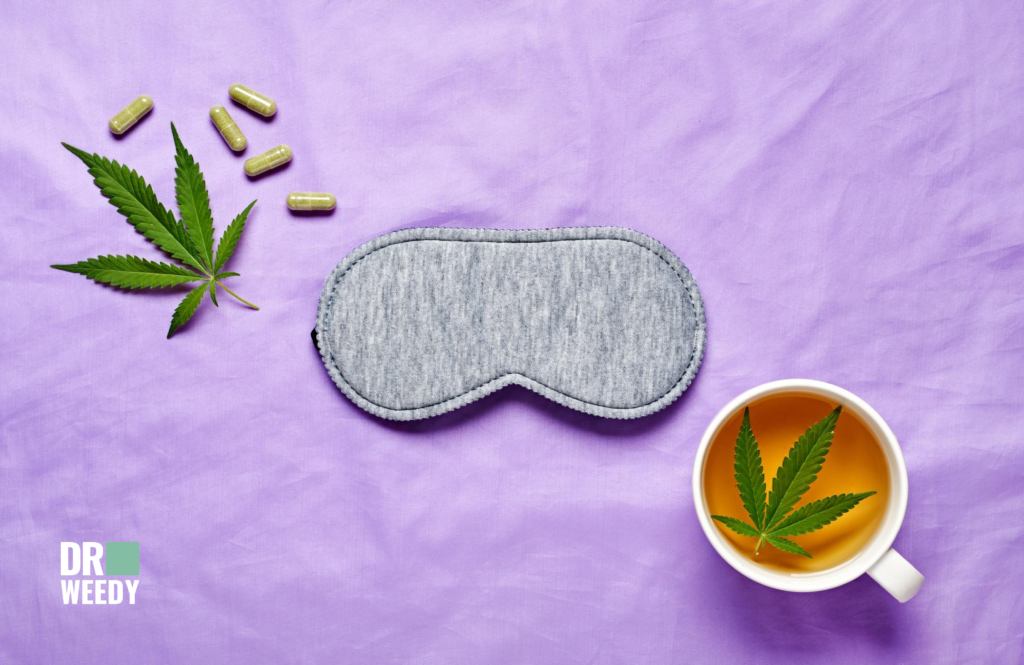
If you want to cautiously try mixing melatonin and weed, keep these tips in mind:
- Start with roughly 1-5mg of melatonin and 2.5-10mg of THC
- Adjust doses gradually as needed
- Use only occasional or short-term
- Avoid operating vehicles or machinery
- Stay hydrated and eat normally before use
- Optimize sleep environment and nighttime routine
- Note any side effects and adjust or discontinue promptly
While more studies are needed, evidence supports potential sleep benefits from the combination with careful use. But the long-term impacts remain unclear.
Seeking Professional Sleep Treatment
For those with chronic untreated insomnia or other sleep disorders, properly addressing root causes is vital for restoring natural sleep rhythms long-term, rather than masking issues with supplements.
Health providers can check for underlying conditions contributing to sleep loss like hormone changes, pain, mood disorders, or side effects of other medications. Then evidence-based behavioral changes, sleep hygiene tips, fractionalized goal-setting, and time-restricted bright light exposure allow better sleep resumption for most people without unvetted chemical assistance.
The Verdict: More Research Needed

Hypothetically speaking, the combination of a small amount of cannabis with melatonin might offer temporary sleep enhancement for certain adults where its use is legal. However, the existing data does not conclusively determine the safety or efficacy of prolonged usage. Until more comprehensive research provides clear medical directives, it’s wise to maintain a cautious approach.
Sources:
- WebMD, Melatonin – Uses, Side Effects, and More
- Bowles, N. P., Herzig, M. X., & Shea, S. A. (2017). Recent legalization of cannabis use: effects on sleep, health, and workplace safety. Nature and science of sleep, 9, 249–251. https://doi.org/10.2147/NSS.S152231
- Saleska, J. L., Bryant, C., Kolobaric, A., D’Adamo, C. R., Colwell, C. S., Loewy, D., Chen, J., & Pauli, E. K. (2023). The Safety and Comparative Effectiveness of Non-Psychoactive Cannabinoid Formulations for the Improvement of Sleep: A Double-Blinded, Randomized Controlled Trial. Journal of the American Nutrition Association, 1–11. Advance online publication. https://doi.org/10.1080/27697061.2023.2203221
- Thai, C., Tayo, B., & Critchley, D. (2021). A Phase 1 Open-Label, Fixed-Sequence Pharmacokinetic Drug Interaction Trial to Investigate the Effect of Cannabidiol on the CYP1A2 Probe Caffeine in Healthy Subjects. Clinical pharmacology in drug development, 10(11), 1279–1289. https://doi.org/10.1002/cpdd.950

























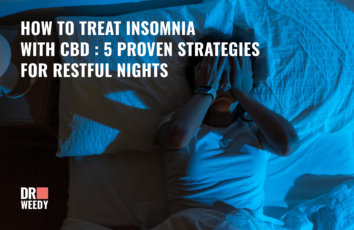
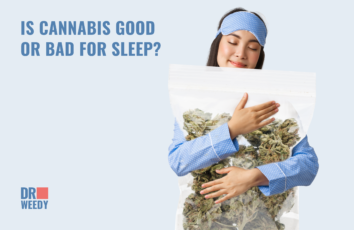
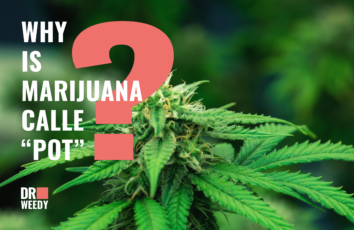
thank you